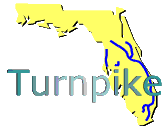

|
Turnpike: |
|
Send Your |

Parking Management Equipment Package |
 |
Description: |
This Equipment package provides the capability to detect and classify properly equipped vehicles entering and exiting the parking facility, and to maintain database information with parking availability and pricing structure information. This capability shall be provided through the utilization of active/passive tag readers and database software containing parking pricing structure and current availability. Wireline communications with clearinghouse operators (the Financial Institution terminator) and the back office (the parking service provider terminator) enable processing of financial transactions and external coordination.
|
||||||||||||||||||||||||||||||||||||
Included in: |
CVO Parking Facilities Service Plazas |
||||||||||||||||||||||||||||||||||||
Processes: |
|
||||||||||||||||||||||||||||||||||||
User Service Requirements (fully or partially addressed): | |||||||||||||||||||||||||||||||||||||
|
|||||||||||||||||||||||||||||||||||||
| The detailed process and user service requirement traceability information on this page was extracted from the National ITS Architecture. Consult the National ITS Architecture web site for more information. | |||||||||||||||||||||||||||||||||||||
